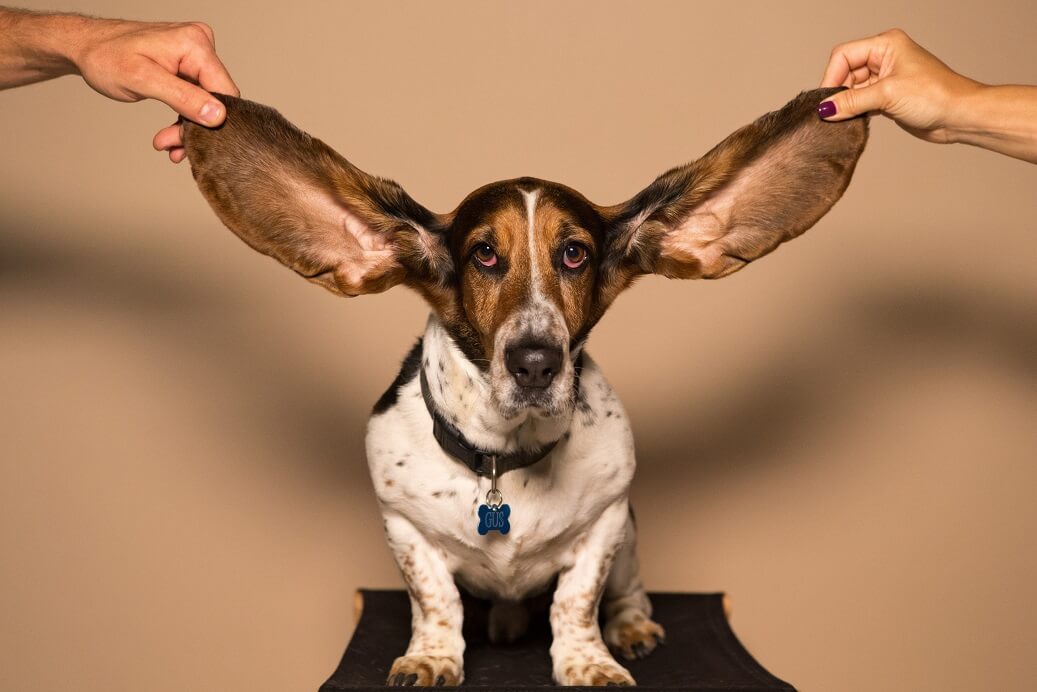Have you ever found yourself wondering, "Why does my dog lick the blanket?" You're not alone—many pet owners notice this quirky behavior and want to understand it better. While licking is a natural action for dogs, the question remains: why blankets? If you're also curious about similar behaviors in other pets, you might want to learn why cats bite blankets. We’ll explore the many reasons dogs lick blankets and how you can better understand and respond to this behavior to ensure your pet’s comfort and well-being.
What is Blanket Licking?

Blanket licking is a surprisingly common habit among dogs, and it often leaves pet parents scratching their heads. You might catch your furry friend licking blankets, chair arms, or other household items. Though it might seem strange, this behavior can stem from several causes. Dogs may lick blankets out of boredom, to soothe themselves when they're anxious, or even because of underlying health issues that need attention.
Sometimes, dogs are attracted to the scent or taste left on a blanket—whether that's food crumbs, their favorite human’s scent, or even the smell of other pets. For some pups, licking blankets is a way to relieve stress or cope with separation anxiety, especially when left alone for long stretches. In other cases, blanket licking can become a repetitive habit and may even signal obsessive compulsive disorder (OCD) if it becomes excessive and hard to interrupt.
Figuring out why your dog licks blankets is the best way to help them feel safe and comfortable. Whether your dog licks blankets occasionally or seems to do it all the time, paying close attention to their behavior and environment can help you determine if they’re just bored, seeking comfort, or if something deeper is going on. Once you understand the reasons behind blanket licking, you can take steps to support your dog’s well-being.
The Reasons Dogs Lick
Dogs have plenty of unique behaviors that can leave us puzzled, and licking is definitely one of them—especially when it comes to blankets. If you’ve ever wondered why your dog can’t seem to stop licking the blanket, you’re not alone. There are several reasons behind this behavior.
First, licking is an instinctive behavior inherited from their wild ancestors. Puppies lick their mother’s face and body to signal hunger or to get attention. Adult dogs lick their pack members to show submission, affection, or respect. Plus, dogs use their tongues to explore the world around them—licking helps them gather information about objects and surfaces.
But licking isn’t always innocent. Dogs may lick when they’re stressed or anxious because it helps calm their nervous system. Boredom can also play a role—dogs who don’t get enough mental or physical stimulation may develop habits like licking blankets. Some dogs lick to scratch an itch or ease pain from dental problems like toothaches or mouth sores. Sometimes, excessive licking points to underlying medical issues such as allergies or skin infections.
As a pet owner, it’s important to watch your dog’s behavior closely. If your dog licks constantly, it might be a sign of anxiety, stress, boredom, or health problems that need attention. If you notice excessive licking or changes in your dog’s habits, consulting your veterinarian is always a smart move. Next, we’ll look at what makes blankets so irresistible to dogs.
What Makes Blankets So Attractive?

Dogs can be funny creatures with odd habits, and licking blankets is definitely one of them. So, what is it about blankets that draws dogs in? (If you’re curious about why cats bite blankets, that’s a whole other mystery!)
For starters, blankets often have a soft, cozy texture that feels good to lick or suckle on. The fuzzy fabric can provide comfort and a sense of security. Many dogs use blankets to soothe themselves, especially when they’re feeling anxious or stressed.
Blankets also carry familiar scents that dogs associate with safety and comfort. If you use a blanket to cover your dog’s bed or cuddle with them, they may become attached to its smell and lick it to feel close to you. Dogs might also lick objects or be drawn to favorite chairs for similar reasons—the familiar scent provides reassurance.
Finally, some dogs just enjoy the taste and texture of fabric, including blankets. This could be their natural curiosity or a way to explore their environment with their mouths. To discourage blanket licking, some owners use sprays with a bitter taste to make the fabric less appealing.
Overall, there are many reasons dogs are attracted to blankets. But remember, excessive licking behavior can sometimes signal anxiety or medical issues. If your dog obsessively licks blankets or other objects, it’s a good idea to check with your vet to rule out any health concerns.
Comfort and Calming
Dogs find comfort in soft textures like blankets, and licking helps extend that feeling. It’s a form of self-soothing that can calm dogs during stressful or anxious times. Licking releases endorphins in their brains, which helps reduce stress and makes them feel more relaxed. Think of it as their version of a comforting hug or a cozy cuddle to bring some stress relief.
This behavior is especially common in puppies, who lick their mothers for warmth and reassurance. While dogs also lick themselves to clean, licking blankets is more about seeking comfort. You might notice your dog licking more when they’re nervous or scared.
So, occasional blanket licking is generally nothing to worry about. But if your dog’s licking becomes compulsive or obsessive, it could indicate underlying health issues, anxiety, or medical concerns such as gastrointestinal problems, nausea, dental pain, or cognitive dysfunction. In those cases, it’s worth exploring the reasons behind the behavior and consulting a vet or professional for guidance.
Next, we’ll explore some instincts and associations that might explain why dogs develop a strong liking for blankets and why some become obsessed with licking them.
Instincts and Associations
While licking might seem odd to us, it’s important to remember that dogs rely heavily on instincts to communicate and understand their surroundings. In the wild, dogs lick each other to show submission or affection. Licking also helps dogs better analyze scents in their environment.
Beyond instinct, dogs form associations with objects or activities. If your dog has a positive experience when licking a blanket—like getting your attention or treats—they may keep doing it. Conversely, if they’re feeling anxious or stressed, licking blankets can act as a coping mechanism.
Understanding these instincts and associations can help you figure out why your dog licks their blanket. Is it to calm themselves, or have they linked it to positive reinforcement? If your dog’s licking becomes excessive or obsessive, it might be a sign of a deeper issue. In such cases, consulting a veterinarian or dog behaviourist can be helpful to rule out medical problems and address the behavior.
Medical Concerns to Consider
Though blanket licking is often harmless, it’s important to be aware of potential medical issues that might cause your dog to lick excessively. Some health concerns to watch for include allergies, skin irritation, dental problems, or gastrointestinal issues.
Allergies can cause itchiness and discomfort, prompting dogs to lick for relief. Skin irritations or infections like hot spots or dermatitis may also lead to excessive licking. Dental problems—such as gum disease or tooth pain—can cause discomfort that dogs try to soothe by licking. Gastrointestinal issues, including nausea or acid reflux, might also drive licking as dogs attempt to ease their upset stomach.
If you notice your dog’s licking has increased or is accompanied by other symptoms like vomiting, diarrhea, or changes in appetite or behavior, it’s important to consult your veterinarian. Physical discomfort can cause dogs to lick blankets or furniture, and older dogs may develop compulsive licking due to cognitive decline like dog dementia.
While blanket licking is usually harmless, staying alert to potential medical concerns helps ensure your dog remains happy and healthy.
Obsessive Compulsive Disorder
In some cases, excessive blanket licking may be a sign of obsessive compulsive disorder (OCD) in dogs. OCD involves repetitive, compulsive behaviors that dogs feel compelled to perform, even without clear reasons.
Dogs with OCD might not only lick blankets excessively but also show symptoms like drooling, pacing, or repetitive movements. These behaviors often continue despite attempts to distract or redirect them. Anxiety can worsen these symptoms, and the licking may persist even in calm environments.
If you suspect OCD is behind your dog’s licking, seeking veterinary advice is crucial. A vet can diagnose the condition and suggest treatments, which may include anti-anxiety medication or behavioral therapy. Providing your dog with plenty of mental stimulation—through interactive toys, puzzle feeders, and regular play—can also help reduce compulsive behaviors and improve their quality of life.
Remember, OCD is a medical condition, and early intervention with professional help is the best way to support your dog’s health and happiness.
Addressing Excessive Licking Behavior
Licking is natural for dogs, but excessive licking can be problematic. If your dog is licking their blanket too much, there may be underlying issues to address. Here are some tips:
- Talk to your vet. They can help identify medical causes like allergies or gastrointestinal problems. If the behavior continues despite your efforts, professional guidance is important.
- Consider your dog’s environment. Are they bored or anxious? Ensure your dog gets enough physical exercise and mental stimulation to prevent boredom and reduce unwanted habits. Activities, playtime, and interactive toys are vital for your dog’s well-being. Watch for changes in behavior or stress triggers like loud noises.
- Check for skin irritations. Look for redness, bumps, or irritation and consult your vet if needed.
- Use positive reinforcement training. Reward your dog when they aren’t licking the blanket. Consistent training can help reduce anxiety-related licking.
- Try deterrents. Bitter sprays or chew deterrents can discourage persistent licking. Always consult your vet if the behavior continues.
- Review your dog’s diet. Nutritional deficiencies or gastrointestinal issues can cause compulsive licking. Work with your vet to ensure a balanced diet.
Constantly licking blankets or furniture can also damage your belongings, such as causing damp chair arms or worn-out furniture. Identifying and addressing the root cause of this behavior is important for your dog's health and to protect your home.






